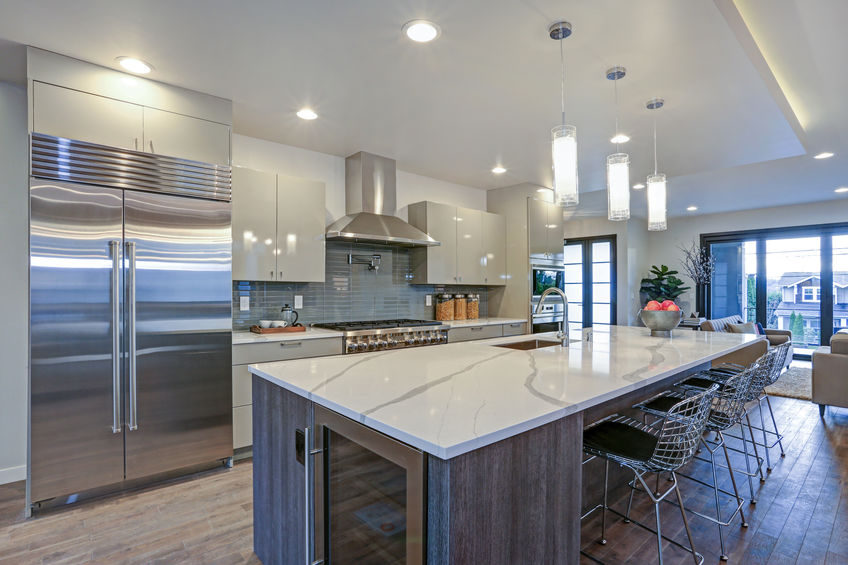
Are you in the market for new engineered hardwood floors? If so, we have put together a brief article discussing the pros and cons of glued-down vs. floating engineered hardwood floors. We hope that the information listed below will answer your questions and help you choose the best hardwood for your project.
Glued-Down Engineered Hardwood Floors
Pros
- Authentic Sound: It sounds like solid hardwood floors because of the way they are installed. When walking across the floor, there is not a hollow sound or spongey feel like floating hardwood floors.
- Vapor Barrier: It does not require a vapor barrier because the glue acts as the actual barrier.
- Minimal Shifting: Glued-down floors shift a little less than floating floors. This is great for installing over a surface that is not level. Floating floors require a level floor for installation.
Cons
- Difficult to Install: The floors are difficult to install on your own, making it a challenging DIY project.
- Longer Installation: Installation takes longer than floating floors because of the glue.
- Harder to Remove: Regarding removal, they are much harder to remove due to the glue compared to the click and lock type for floating floors.
Floating Engineered Hardwood Floors
Pros
- Quick Installation: Because there is no glue involved in the installation, floating floors can be put down quickly, and often an entire room can be completed in one day.
- Diversity in Environments: Floating floors can be installed over more types of underlayment.
- Easy Removal: Floating floors are much easier to tear up and remove because there is no glue.
- The solution to Challenging Rooms: If a glued-down hardwood floor is being installed on a surface that it cannot adhere to, your best bet is to install a floating hardwood floor.
Cons
- Shifting: Compared to glued-down hardwood floors, floating floors will shift more.
- Sound: If you are thinking of installing floating hardwood floors, they require a level surface, or they will sound hollow.
- Underlayment: They require an underlayment that increases cost and takes longer to install.
If you are still seeking information, please do not hesitate to visit us at Levi’s 4 Floors.

Leave a Reply